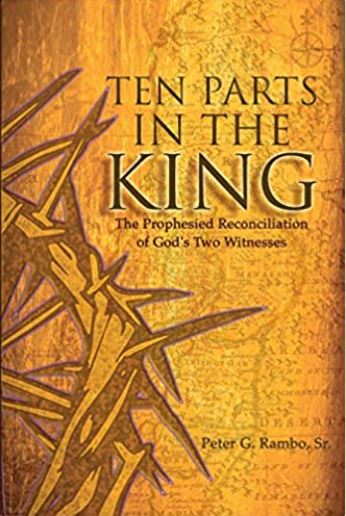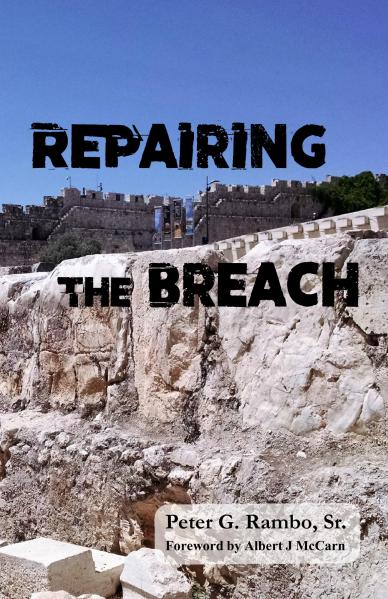Here is the beginning of an excellent post over at Kineti L’Tziyon.
“I am a non-Jewish Messianic Believer, and have been told that my calling as a ‘Messianic Gentile’ is to go back to a church and not become Torah observant.”
In the broad Messianic world, there has been a large movement of Torah-seeking gentiles.
In fact, many Messianic ministries like First Fruits of Zion, Outreach Israel Ministries, and Torah Resource, are supported largely by non-Jews who are seeking a Torah-based lifestyle.
This was unexpected. The Jesus Movement of the 1970s, when God’s spirit was poured out on millions of Jews and gentiles, spurring the birth of the modern Messianic movement, did not anticipate all these non-Jews seeking Torah. It’s been my experience that Messianic Jews don’t really know what to do with all the Torah-seeking gentiles, except be ashamed of them.
Some Messianic believers, particularly those in the Messianic Judaism sub-movement, have reacted negatively. “You’re Torah observant? Pfft! You’re just playing Torah, not following it in the proper manner. Go back to the Church!”
Such people will cite 1 Corinthians 7, Paul’s recommendation to “remain as you were called.”
You know, where Paul says, paraphrasing,…. Continue Reading…




















































































































I’m having a very interesting conversation with “ProclaimLiberty” on my blog about Torah values vs Jewish culture (that link leads to his comment…scroll down to read my response) that somewhat fits into this. What do “Torah seeking” believing Gentiles really seek? To emulate Jewish culture or adopt the values, ethics, and principles that are taught in Torah and that are the bedrock of faith in Messiah?
LikeLike
Added my comment over there. I really appreciate PL’s and your comments right where I added.
PL said a mouthful when he said, ” “What happens when non-Jews reject the idolatrous elements of their culture which influenced its development?” Clearly, they must develop an adjusted or alternative culture, presumably by adopting godly perspectives and behaviors that have been derived from HaShem’s Torah instructions and incorporated into and demonstrated by Jewish culture. “
LikeLiked by 1 person
It’s comments like yours Pete that show we can bridge the gap between our two (overlapping) perspectives and have civil dialogue. Well said.
LikeLiked by 1 person
Sad how so many (and not just in the church) think disobedience is the new obedience. Why folks can’t stand our obedience to serve Yah is beyond me. Shouldn’t they praise and exalt Him instead?
LikeLike
Not when pride and jealousy are in the way…
LikeLike
I have always said, God has His own culture, found in the Torah, He calls them His feast days, and His appointed times, and for His purposes, this makes a distinction between man made feast days and for good reason. It does not automatically mean that man made feast days are wrong, but we must be clear, there is a difference between God and Man made. The difference between man made culture and God culture, man made kingdoms and God’s Kingdom… these distinctions are lost on some people.
Yeshua Himself, separated tradition from commandment, when He said:
Mark 7:8
Neglecting the commandment of God, you hold to the tradition of men.
So again, my argument is not to say traditions of men are in and of themselves bad, some are wonderful, my point is to say that God’s commandments and men’s traditions, are not the same thing. The evidence is plain and clear.
LikeLike
Ding, ding, ding… And therein is ‘the gap’ that James speaks of. The same problem at Acts 15 is the problem today. Tradition trying to hold sway over the unchanging Word. See part of the discussion in the thread he was referring to!
LikeLike
Except that no one interprets the Bible outside of a tradition driven interpretive matrix. Jews are pretty upfront about it. The local Chabad Rabbi told my wife pointblank that Jews (at least the Chabad) interpret the Torah based on their traditions. The church pretty much does the same thing but they try to deny it.
It would be nice if we could somehow separate “man-made traditions” from the Word of God, but beyond a certain point, I don’t think it’s possible. The Torah was given with local cultures in mind and many of the mitzvot don’t include how to perform them (how to tie tzitzit, the commandment of tefillin, and so on).
It’s very Christian to believe that we can just obey the pure Word of God, but one of the things I like about Judaism is its willingness to exist in a state of dynamic tension and not have to possess all the answers in absolute form.
LikeLike
I understand what you are saying, but here is a thought. Is it possible that the Father never intended for interpretations to be written down and therefore codified into a ‘commandment’ of its own?
Consider: Tzitziot. Isn’t there enough information there to allow freedom to the individual by the Ruach to walk it out? Ex. I wear tzitziot and hosted a Messianic Jew in our home. He was wearing a big burly set of blue and white tassels. I on the other hand was wearing a smallish set that had more colors than just blue and white in them.
He asked, ‘Isn’t that adding to the commandment?’
I countered, ‘The commandment says “a blue thread.” Beyond that, I feel free to enjoy the many colors our Father has given us.’
There was no overt disagreement or tension, but I think it gave him pause to think about how limiting to blue and white is adding to/subtracting from the commandment, depending on the perspective. His choosing to wear blue and white is in keeping the command if that is how he chooses to, but the minute he wanted to enforce his choice as ‘policy’ or halachah, he was out of the bounds of the command as written.
Thoughts?
LikeLike
There’s as much danger in what you’ve just said as many Hebrew Roots people assign to the “man-made traditions” of the Pharisees. How much latitude do we have as Gentiles that we deny the Jewish authorities when they make seemingly similar decisions?
LikeLike
I impose it on no one. My point is that I was exactly following the command as given. Tassels with a blue thread.
It is the imposition of a position that exceeds the freedom G-d builds into the commandments. Traditions are fine, it is when they are given the authority or weight of Law that they cross the boundary.
I have blue and white tzitziot that I wear as well, according to the tradition, but I am not bound by that tradition.
And what of those who only wear white tzitzit for some tradition of mourning… By not having the blue thread have they not taken away from the commandment?
Does the tradition have authority? (This is the central question!!)
Again, I agree that there is some value in traditions, but when the traditions are given too much authority, they become law. And that my friend is VERY dangerous.
LikeLiked by 1 person
I think the relationship between tradition and the text is more nuanced than that and also believe that Jesus did give the apostles authority to make halachah in his stead. If in any sense God also gave various sages and leaders within Judaism a measure of authority over their communities, then it begs the question of whether or not they should be able to interpret scripture and apply those interpretations accordingly.
It’s a fascinating conversation, but I don’t want to be late for the gym so I’ll have to cut it short for now.
LikeLike
@James,
We have to remember, despite whatever we think, Yeshua, made a clear distinction between God’s commandments and men’s traditions, there really is no way around that. Whether or not we can clearly do that in our imperfect state is definitely a more nuanced topic, but there is without a doubt a difference, which is a fact.
Now, where does it leave local authority, such as traditions, well we have to ask if such local authority should be able to decide “which shoe you put on first in the morning”. And if this authority is upheld by Torah to make such decisions.
I am for tradition, I like it, it makes all kinds of situations in my life better and more enjoyable. I like having a consistent tradition with those around me, however I don’t believe in imposing my traditions on others, something we see in Judaism, in fact, any veering from some Orthodox traditions are considered a major error in rebellion and following ones own ways, instead of God’s…
James, it seems strange that you are not part of Catholicism or Orthodox Judaism, because they both say the exact same thing you are saying, do you not practice what you believe? Traditional authority? Which believes Protestantism is invalid and has no right to authority for its local community or Orthodox Judaism which believes anything outside of traditional understanding is in error and invalid?
@Pete,
I agree, and where the scriptures does not say we cannot, I do not impose on someone otherwise. Some forms of Christianity have been known to claim that drinking alcohol is a sin, dancing is a sin, singing is a sin… it seems according to James, if those in local authority say so, then it is, does not matter what the Bible says, I find that to be extremely scary, because the word of man becomes more powerful than the word of God. I am always reminded of this verse in Acts 5:29 But Peter and the apostles answered, “We must obey God rather than men.
Even the Apostles made a distinction and drew a line between God and Man’s authority, which was in direct opposition to the orders of the High Priest and the governing authorities. James, if you don’t mind, how do you deal with this predicament, which seems to be in complete contradiction to what you have stated.
I say all this, not to say that there is no human authority, we would live in a terrible world without human authority and order. But there has to be some balance here…
LikeLiked by 1 person
Zion said: “We have to remember, despite whatever we think, Yeshua, made a clear distinction between God’s commandments and men’s traditions, there really is no way around that. “
Yeshua made a clear distinction between some of the traditions and God’s commandments. Matthew 23:3 is the Master advising his disciples to do what the Pharisees teach but not what they actually do. Seems the problem wasn’t always with what the Pharisees taught but the fact that they didn’t practice what they preached.
If some of Yeshua’s disciples didn’t practice netilat yadaim (ritual hand washing), apparently others did. It could have been that the Master was flexible on some of the traditions and only objected to those that directly interfered with the weightier matters of the Torah.
Ritual hand washing, and probably a great many other traditions, weren’t the problem. The problem was replacing tradition with the commandments, particularly those commandments that are to produce compassionate action toward others.
Going back to the issue of tzitzit, if a Gentile chooses to wear tzitzit in private prayer (and I know some Messianic Gentiles who wear a tallit katan with the tzitzit tucked out of sight into their trousers), what harm does it do anyone to adopt one of the formal methods of tying the fringes and not assume was can just “play it as it lays,” so to speak?
LikeLike
If the Master left us the Spirit to guide us in all truth, what role does the Spirit have in leading us in how to interpret the Scriptures for ourselves?
Zion makes very valid points as to your placing tradition on a very high pedestal. It is by that tradition that you seem to set aside certain commandments. And, what role does being grafted in have to play? If I am truly grafted into Israel, then do those commandments not apply to me as well? ala JK McKee ger explanation?
LikeLike
That’s the $64,000 question, Pete. Is it really a matter of either/or? Either it’s just us on a deserted island with a Bible and the Holy Spirit, or does community and community standards ever come into play. We’re used to thinking like isolated individuals because that’s a western and particularly American cultural ideal. But God isn’t American and He didn’t give His commandments to each one of us as American individuals, He gave them to the community and nation of Israel.
How does all that affect those of us who are grafted in (although exactly into who or what we’re grafted in is up for debate) Gentiles? Like I said, that’s a very good question.
Since you invoke McKee, I must say I’m only halfway through his book (hope to get further today during lunch). If I’m supposed to “answer McKee” in responding to your query, you’ll have to wait until I write my book review.
LikeLike
Really agree with this whole comment. Encapsulates well my thoughts!! Thanks and well articulated!
LikeLike
James,
Yeshua made a distinction between tradition and commandments by His very statement, point in case, He took issue with only some of the tradition as neglecting the commandments of God. He kept a lot of tradition, so it is clear He was not entirely opposed to tradition, but He did clearly make a distinction…
Ritual hand washing, and probably a great many other traditions, weren’t the problem. The problem was replacing tradition with the commandments, particularly those commandments that are to produce compassionate action toward others.
Right, a form of legalism, where tradition has been given an authority over the commandments, so much so, that the tradition causes one to neglect the very commandments of God. This is where tradition can be become dangerous, when it becomes more powerful than the commandment.
Going back to the issue of tzitzit, if a Gentile chooses to wear tzitzit in private prayer (and I know some Messianic Gentiles who wear a tallit katan with the tzitzit tucked out of sight into their trousers), what harm does it do anyone to adopt one of the formal methods of tying the fringes and not assume was can just “play it as it lays,” so to speak?
I actually where a katan tallit as opposed to belt loop tzitzit or any other method. However I don’t judge people who by wanting to keep the commandment, perform a different method. This reminds me of washing of the hands… we can either be legalistic about it or be like Yeshua, and take a more compassionate stance on performing the commandments.
LikeLiked by 1 person
In my opinion, even a casual reading of various sections of the Torah reveals God wasn’t advocating a “shooting from the hip” approach to obedience. He had very specific ideas in mind. We tend to assume that when He wasn’t specific, that He just didn’t care, and thus each individual becomes free to interpret God and the mitzvot in anyway we desire. On the other hand, the mitzvot were not given to individuals, they were given to a nation and thus apply and are administered by community standards, not on a person by person basis.
If the Israelites didn’t know what do to about a commandment, they consulted Moses. If Moses didn’t know how to answer, he consulted God. It may well be that Moses didn’t literally write down everything everyone asked and how God answered, so perhaps there really was an original method imparted for how to tie tzitzit, an “oral Torah” if you will.
Since that method is lost to Judaism (although Judaism would disagree and who’s to say they’re necessarily wrong), then each Jewish community relies on its sages and the traditions handed down by sages of old within their various branches to understand how to tie tzitzit. Originally, there were twelve tribes but one Moses, so Moses set the standard (consulting with God) for how to observe the mitzvot.
Today, there are multiple streams of Judaism and thus multiple, overlapping traditions on how to be observant. There are even today multiple standards on how to tie tzitzit. If I were to choose to wear tzitzit on a tallit gadol and/or tallit katan (not that I would at this point in my life), I’d probably select one of those rather than making up my own, personal tradition. If I were to choose to become part of a community that advocated Gentiles wearing tzitzit, I’d very likely accept the community’s standard because God creates communities, an ekklesia, not stand-alone individuals with millions of stand-alone individual ways to choose how to obey Him.
JMHO.
LikeLike
James,
I hear what you are saying, I believe in local community, and if there was a national government as the Torah is intended for, I would follow that. However there is no national government, and you proved that Judaism has done that, by having 12+ more ways on how to wear tzitzit… some Jews where the blue thread, some do not. The commandment is to wear a blue thread, the tradition is to not. So while you advocate for a central authority, you also have to deal with not keeping the actual command.
Also concerning, what the Torah does not say, and thus everything in between must be decided from a standing authority is way to burdensome. All the way to the point of which shoe to put on in the morning, to the details of every single food, are chocolate chips Kosher? Well lets go find out, don’t we have a standard in the Torah to determine such… does one have to have a traditional authoritative ruling on every single thing in life… I think that is unreasonable.
I also see Yeshua disregarding some tradition and claiming some traditional authority as invalidating God’s word to mean, we can’t simply just accept even and all human authority. We see the Apostles deny human authority on multiple occasions. Somewhere there has to be some balance, and I think you sit on an extreme side. Like I said, I am surprised you even believe your Church has any local authority… from your view point, it would seem that only Catholicism and Orthodox Judaism have any true claim on authority…
Thanks for the discussion back and forth, clearly we don’t see eye to eye, but it is good to understand your view point, as it is almost the opposite of mine… 😛
LikeLike
Yes. I agree. We don’t see eye to eye.
In the end, Messiah will establish the final, governmental authority, and he will clear up all matters of halachah for Jews and for Gentiles. In the meantime, at least from a general Jewish perspective, Religious Jews belong to various communities and they accept (as far as I know) the authorities within those communities. There are different branches of Judaism for a reason, just as in the day of Yeshua.
I’m not Catholic or an Orthodox Jew because I don’t belong to those communities, the former by choice and the latter because (in part) I’m not a Jew (the other part is that I’m a believer in Yeshua as Messiah so even if I were Jewish, I would not renounce my faith in order to become Orthodox).
I do believe the local church I attend has authority, not the authority to direct my thoughts and how I define my faith (sometimes to my Pastor’s chagrin), but the authority to set standards of behavior for those who attend. I certainly wouldn’t show up for Sunday services in just a bathing suit if for no other reason (and there are other reasons) than because it would violate the church’s standards for dress during worship and be disrespectful to their authority and to God.
If that church were to establish a ruling saying that I had to believe everything they believe, then I wouldn’t go back. They would have the right to establish such a rule and I have to choice whether to accept it or not. If I chose to continue to be part of that community, I would accept their standards.
LikeLike
Pingback: One Law for All? Reviewing JK McKee Pt. 1 | natsab
Wow! I wish I could keep up with you guys! My job is rather demanding, so I can’t come in as often as I’d like.
In the discussion about authority, I see the authority that was on Moses passes to the elders and Joshua. Here is where marriage is a perfect picture of how to walk out life. Just as the wife is submissive to the authority of her husband, so too, we should submit to the authority God set up – who have been hashing out His Word for more years than we have. This does not remove the wisdom given to us by the Spirit. It is that wisdom that would tell a woman to get out of the house with an abusive husband.
As Zion and James mentioned, Yeshua did follow some of the traditions as long as it didn’t counter the commandments. And again, I think this speaks to the wife obeying her husband as long as it doesn’t counter the Word.
@Zion – you mentioned not imposing your traditions on others. I hear what you are saying. However, I think we forget that we are talking about family here. Yes, Israel is a nation, but a nation of family members. There is also the picture of the marriage at Sinai – God as the husband, Israel as the bride. So as the bride, who checks with her husband, she pours through His instructions and passes them onto the children. Sure, she’ll get some things wrong, but she is striving to be obedient and teach others to obey as well.
So the rabbis set up traditions and expect others to obey them. (Not saying that they might not get carried away.) If I set up traditions in my home, then I expect those visiting or living with me to abide by my traditions. However, I would be more forgiving with visitors because they might not know.
There are the traditions that have come down that might be as silly/invalid as a woman cutting off the ends of the roast because her mother did, only to find out that she did it because the pot was too small. But there are also the traditions, like honoring God’s name and keeping it holy. I see this as valid for us today as it was at Sinai. As a daughter, I would never think of calling my earthly father by his personal name. It would be disrespectful. So why do many who call themselves Torah observant fling around His name like they are talking about just another person?
Finally, I think we should remember that, as James pointed out, the commandments were given to the nation as a whole. Our Western culture/Greek thinking tends to say, ‘it’s all about me and my salvation.’ And while the Father is concerned about us as individuals, His focus is on the nation (and the body) as a whole. Case in point: when Israel was exiled to Babylon, there were those obedient to Adonai, but as a whole, the nation was punished.
So glad to see these discussions, if I can’t always participate!
LikeLike